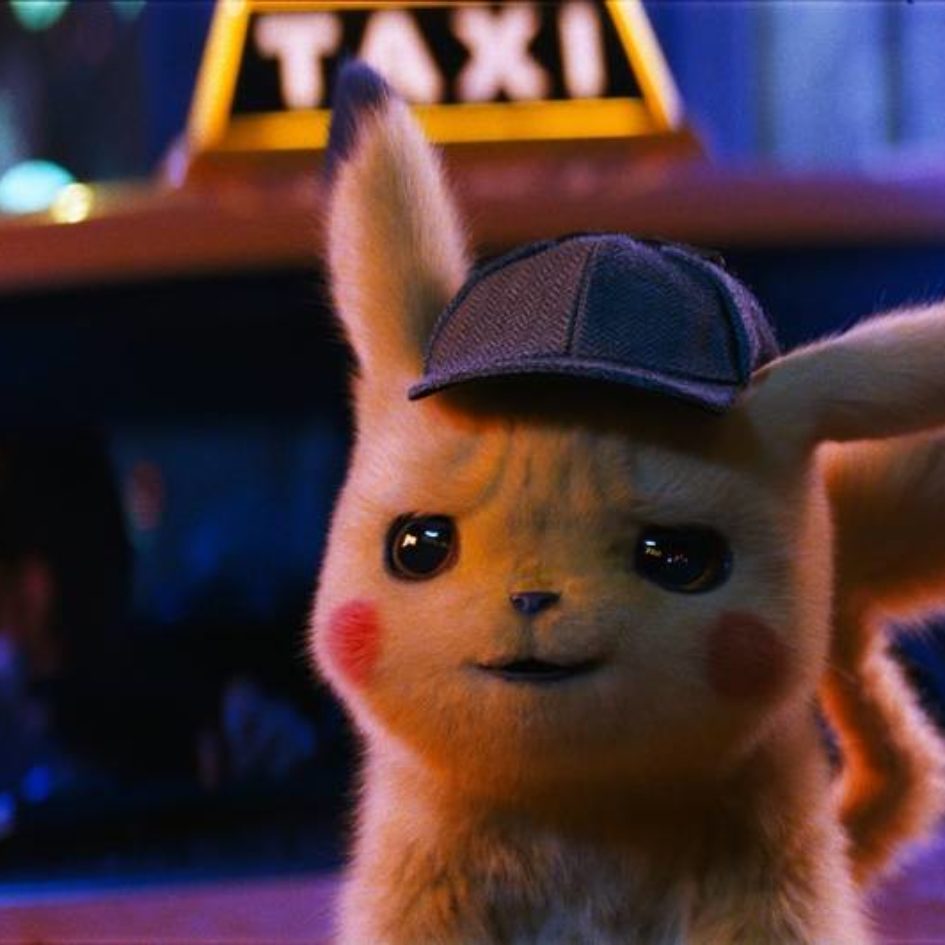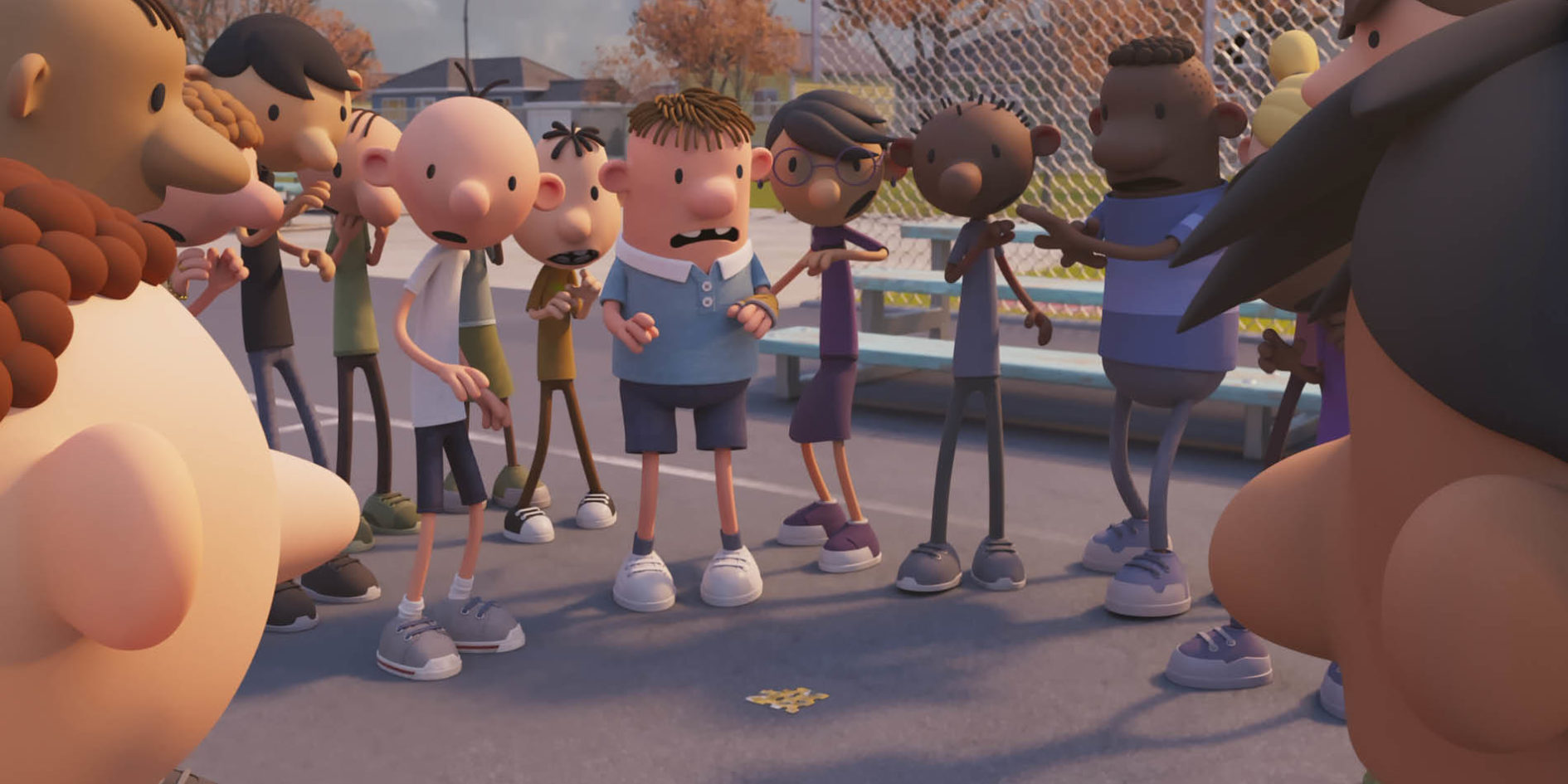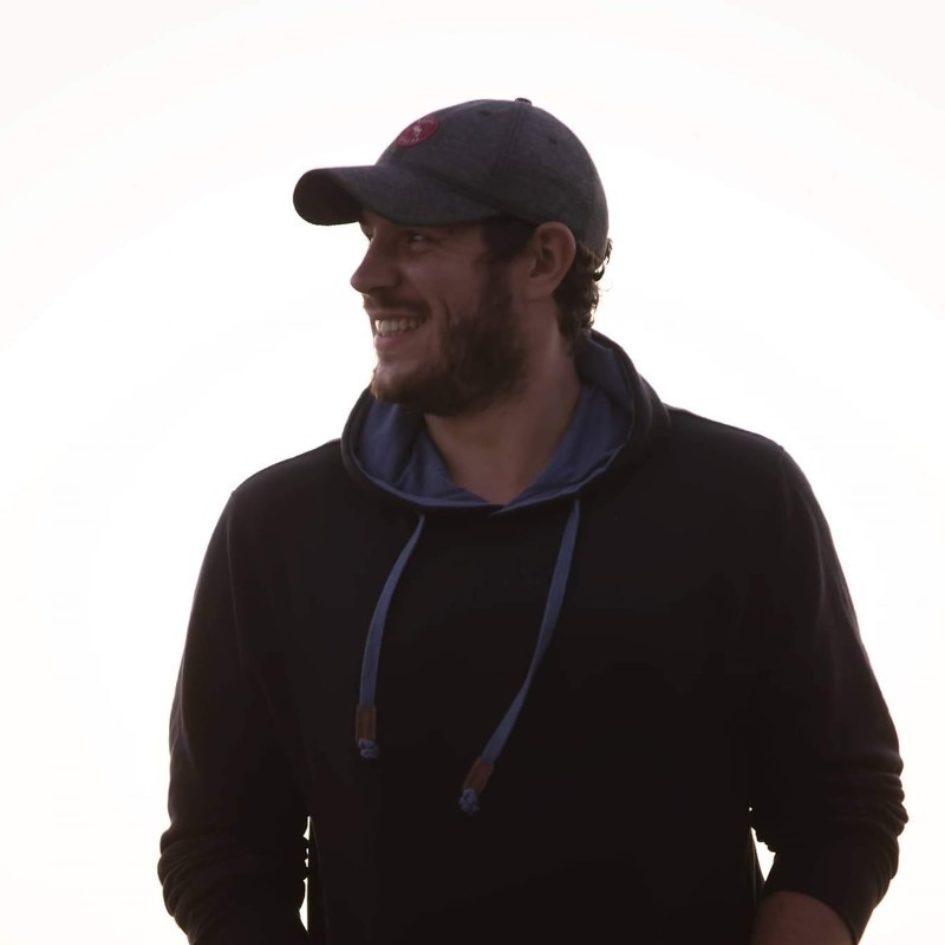
Pierre Chupeau
Meeting with Pierre Chupeau, a 2017 graduate of the CG Animation & FX Master Degree. He was part of the first class from Nantes to graduate. His career path led him to fly to Canada where he flourishes as Lead Lighting & Compositing. Discover his career path.
A look back at your ESMA years
WHAT LED YOU TO ENROLL AT ESMA?
To answer this question, I have to go back a little in my career. I was destined to work in the world of engineering because I had done a Scientific Baccalaureate with an engineering science option. I went to college to study engineering for a year but I felt out of place at all. One of the branches of engineering focuses on the conceptualization and modeling of CG mechanisms and it was the only subject where I felt comfortable.
So, while I was studying in college, I started to get my nose into CG software for entertainment and it was a slap in the face. I realized that I absolutely wanted to work in this industry. Luckily, my university offered a free course on Blender, a CG software for creating visual effects. Where I was close to an absolute zero in math, physics and chemistry, the CG course was a no-brainer for me, and without any need to study or work, I got a 19/20. It was at this point that I started to look into potential CG schools and ESMA, with its short films on Youtube, won me over.
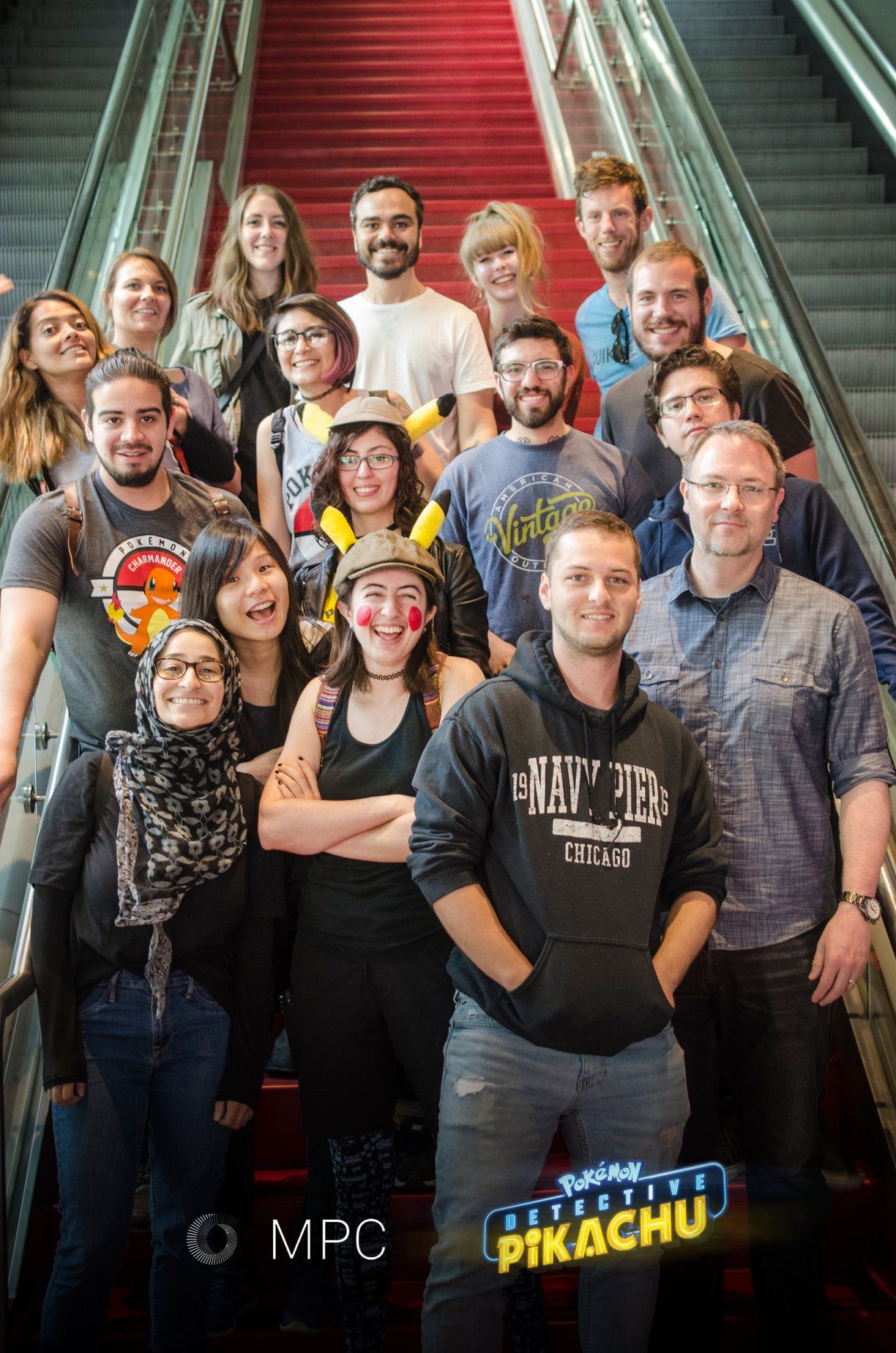
WHAT DID THE TRAINING BRING YOU? WHAT HAS MARKED YOU DURING THESE YEARS AT THE SCHOOL?
In addition to providing me with a generalist education, the school allowed me to sharpen my artistic and critical eye. The graduation film reproduces, on a smaller scale, the steps that a studio must follow to deliver a product to a client: deadlines, teamwork, optimizations to reduce production time…
I think this experience of creating a short film for a year remains the most memorable moment of my time at ESMA. The excitement of seeing the final product on the big screen and seeing the reaction of the audience is still etched in my memory.
WHAT GRADUATION FILM DID YOU WORK ON? CAN YOU TELL US WHAT ROLE YOU HAD AND HOW IT WENT?
I worked on the short Lazarus. My role for the first part of the production was mainly rigging to prepare the characters to be animated. I then helped with the texturing/surfacing of some elements. Once the animation was done, I did the CFX (clothing simulation) and some smoke and dust FX. And finally, I created the lighting on most of the film and also worked on some compositing. It was a very rewarding experience because you learn from others, but you also depend on others. You have to be able to adapt to your team, to the pressure of the deadline, while trying to produce a quality film. It gets a little chilly from time to time because sometimes we have different opinions, but overall it’s a great memory.
DID YOU ALREADY KNOW WHAT YOU WANTED TO DO WHEN YOU LEFT SCHOOL? IF YES, DID YOU TRY, DURING YOUR YEARS AT THE SCHOOL, TO SPECIALIZE IN THIS FIELD(S)?
When I entered the 3D training program, I had no idea what attracted me the most. It was through the exercises we were given that I realized that bringing images to life through lighting was the most interesting part of the production chain for me. I didn’t try to specialize in this particular field, no. It was important to keep an interest in the field. It was important to keep an interest in the other departments because the graduation film only has 5 or 6 people in it and we had to be able to cover all areas.
Your career path
HOW DID YOUR ENTRY INTO THE PROFESSIONAL WORLD GO?
It didn’t go as planned. During our last year at school, we had the chance to go to the Annecy International Animation Film Festival. The school had organized interviews with very good studios, including Double Negative London. Two weeks later, while I was still working on my graduation film, I received an email from DNEG telling me that they liked my profile and would like to offer me a contract. Of course I accepted. I was supposed to start in January of the following year, which gave me the opportunity to take a vacation.
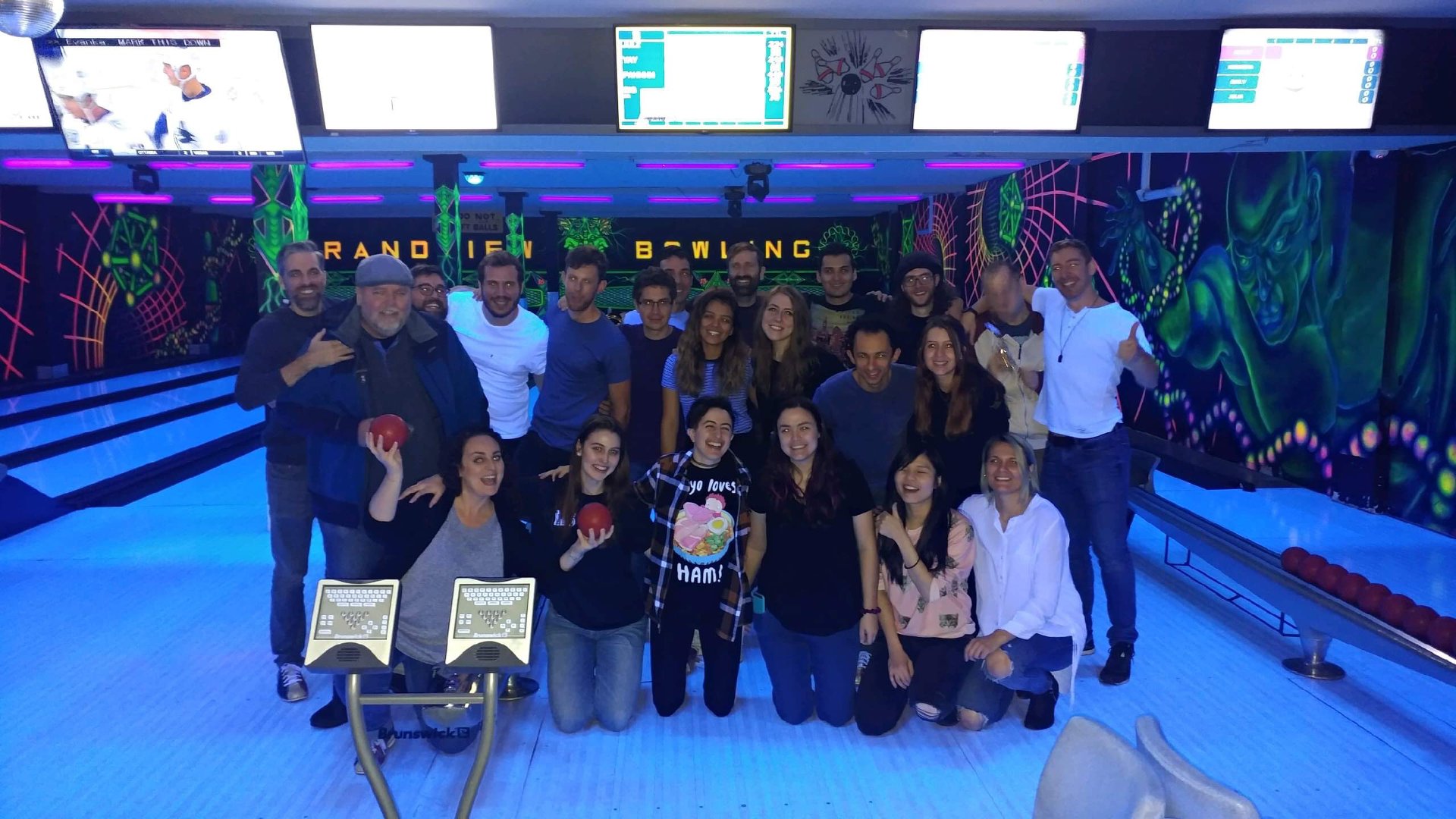
Between September and January, I received offers from studios that I declined since I was supposed to start at DNEG in the coming months. I didn’t see coming the fact that the client was going to postpone the production more than three times until cancelling it at the last moment. In the end, DNEG postponed the date of my arrival 3 times until they finally wished me good luck for the future. 2 months later, one of my teammates and friend on the short film Lazare, Cyprien, tells me that MPC Vancouver is looking for lighters and here I am in Canada.
MPC is a huge company with hundreds of employees, each one as talented as the other. I felt very small the first few weeks. I was supposed to start for 3 months in a lighting academy. There is an instructor who teaches you how the software and the MPC pipeline work: you get shots of already released movies to light (Night at the Museum, Godzilla, etc.) to get you started and to gauge your level. Then, 3 months later, boom, you’re put in a team and you can finally work on a top secret production with a code name and that’s it, you’re the new 007 of Lighting.
Well, not for me apparently. When we arrived at the studio on the first day, they told us that the Academy had been cancelled and that we would have to learn by ourselves in front of a 5 day tutorial. 10 minutes later, all the employees are sent home because, and I quote, “Someone just crashed his car into the electrical panel and we can’t work anymore”. Couldn’t be a more fun first day ahah. In the weeks that followed, I learned how the company works, I experienced my first reviews with the whole team and the sup CG and the machine was launched.
YOU WENT TO WORK IN CANADA, WHY?
The basic idea was to build a professional experience in Vancouver studios for one or two years and then come back to France with this experience. The thing is that in France, most of the work is done in Paris and let’s just say that I don’t have a great love for the capital. Vancouver combines the mountains and the sea, with a temperate climate and, above all, is full of animation and VFX studios. There are a lot of opportunities to work here and I must say, the setting is breathtaking.
HOW DID YOU GET TO WORK IN A FOREIGN COUNTRY?
We had to adapt to the culture, the language, because Vancouver is 100% English-speaking, and understand the language of the banks and other institutions. Vancouver is very cosmopolitan, you meet people from all over the world. On my first day, I spoke to a New Zealander, a Mexican, a Spaniard, an Indian and so on. It’s a really enriching experience humanly speaking.

WHAT POSITIONS HAVE YOU HELD, IN WHICH STRUCTURES, SINCE YOUR GRADUATION?
I first started as a Lighting Artist at MPC for about a year and a half. I then joined Bardel Entertainment as a LRC artist (Lighting Rendering Compositing).
TODAY, YOU WORK AT BARDEL ENTERTAINMENT. WHAT IS YOUR JOB? WHAT DOES IT INVOLVE ON A DAILY BASIS?
After spending a year and a half as an LRC Artist, I became Lead Lighting and Compositing. At the beginning of production, I have to make sure that the lighting and compositing setups are consistent with the film or series we’re working on. This allows the whole team to work in the same way and not start a shot from a blank page. Once the setups are done, I have to assist the production by giving the shots to the right people according to their skills. My days are all different from each other because I am the direct contact for all the artists in case of technical or artistic problems. I spoke earlier about the importance of keeping an eye on the other departments surrounding a production and my current position is a perfect example. Being at the end of the production line, we receive elements from all departments and when something doesn’t work we have to send it back to the department in question explaining what is wrong. Sometimes we have to fix it ourselves. Finally, my daily task is to make sure that what my team produces is in line with the client’s artistic expectations.
WHAT DO YOU LIKE ABOUT YOUR JOB NOW?
Transmission is the thing that makes me get up in the morning and go to work. I am lucky to have a very young team with little experience and it is a pleasure for me to pass on what I have learned during my few years of experience. Thanks to them, I learn a lot, not only artistically, but also humanly. I think that this position is not only to solve problems for others, but also and above all to explain why this problem exists and how to solve it.
WHAT IS THE PROJECT YOU HAVE MOST ENJOYED WORKING ON SINCE GRADUATING? THE ONE YOU ARE MOST PROUD OF?
The project I enjoyed working on the most was Diary of a Wimpy Kid. I started as an LRC artist on that show and my CG supervisor decided to give me my own team. It put a lot of pressure on me because I didn’t know how to manage a team but I was supported by my supervisors and it was a unique experience for me. I also had a creative freedom that I had not had on any other project before. We get what we call a color key, it’s a color concept representing the light intention in a shot that will define the mood for the sequence. There were several times when I changed this intention to give more impact to the shot by having the light respect the expectations but changing drastically from the concept. My superiors trusted me and listened to my choices and sometimes proposed them to the client who accepted them or not.
The one I’m most proud of is Detective Pikachu, it was the very first movie I worked on and I loved the movie itself. Having played the game as a kid, it was great to be able to bring it to light and see the evolution of the film internally.

To conclude
FINALLY, TELL US YOUR PLANS FOR THE FUTURE ? HOW DO YOU SEE YOURSELF IN A FEW YEARS?
I am in the process of applying for Canadian Permanent Residency to stay longer without having to reapply for a Work Permit every year. I would like, why not, to be fully in teaching, or in the position I am in right now which combines transmission and artistic and technical work. I remember MPC having an Academy for incoming Juniors to teach them how the lighting department works, and I would love the concept of being the instructor.
WHAT ADVICE WOULD YOU GIVE TO STUDENTS ABOUT HOW TO DO WELL IN THEIR DEGREE?
There is no secret, you have to work hard but above all, be passionate. If you arrive in this training it is not by chance: at some point there was a spark, something that pushed you to register and walk through the doors of the school. When you have moments of doubt, remember this spark and if it is strong enough, it will motivate you to surpass yourself to reach your goal. And of course have fun, not everyone is lucky enough to work in this field. There is a lot of freedom, we are all big kids, so work well now to be able to have fun in your professional life.



